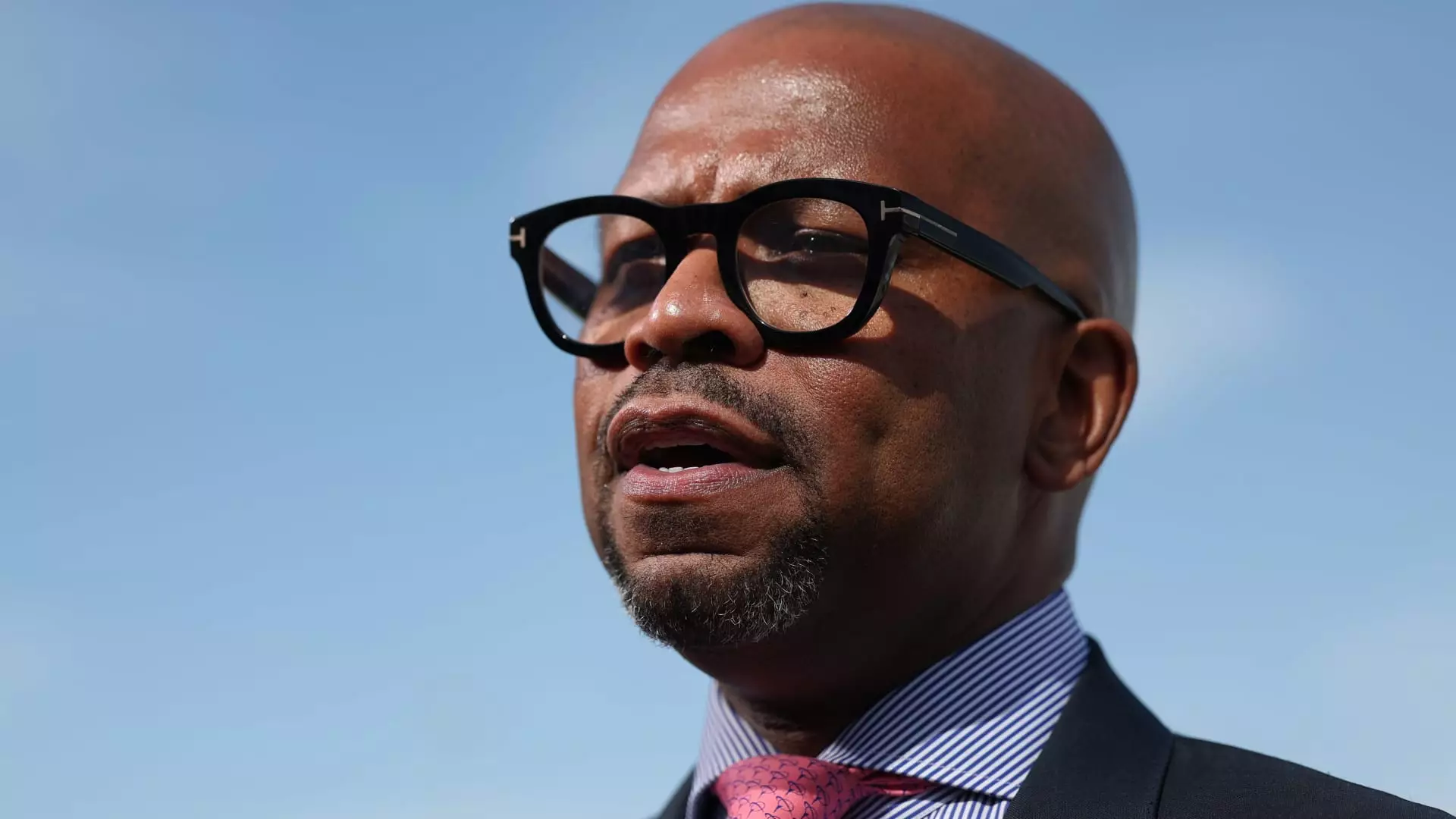In a surprising turn of events for Boeing’s defense unit, Ted Colbert’s immediate departure has been officially announced by CEO Kelly Ortberg. This marks Ortberg’s first significant leadership change since taking over the reins in August. The decision to part ways with Colbert comes at a pivotal time for the company, as they strive to regain the confidence of their clientele and to meet the escalating expectations tied to their defense contracts. Ortberg’s memo articulated a clear message: restoring trust and improving performance are the company’s top priorities.
In the world of defense contracting, trust is not just a bonus; it is a necessity. The stakes are high, with numerous stakeholders involved in military and aerospace operations relying on Boeing’s ability to deliver quality products on time. Ortberg emphasized the collective responsibility that lies with Boeing’s employees to enhance performance and uphold commitments. This call to action underscores a culture that values accountability, which is essential in ensuring customer satisfaction and securing future contracts.
With Colbert’s exit, Steve Parker, the unit’s Chief Operating Officer, has stepped into the role of acting head. This transitional leadership poses additional challenges as Parker familiarizes himself with the broader implications of the company’s struggles, particularly regarding production delays and cost overruns. These issues have been especially pronounced in Boeing’s defense, space, and security sector, which accounted for nearly 40% of the overall revenue in the first half of the fiscal year.
Boeing’s defense unit is currently grappling with significant production hurdles that have hindered their operational efficiency. Problems with the new 747 aircraft intended for use as Air Force One stand out as a particularly pressing concern. These complications not only affect Boeing’s reputation but also have financial ramifications, potentially influencing stakeholder investment and public confidence in the aerospace giant.
The space division also faces scrutiny, particularly with the recent news regarding the Starliner mission. The vehicle, which was expected to return with NASA astronauts after a successful trip to the International Space Station, fell short of its goal. This failure to deliver demonstrates challenges not just in execution but potentially in design and testing as well, necessitating a reflection on how Boeing approaches space exploration missions in the future.
As Boeing navigates this tumultuous period, the path forward will undoubtedly require a focused reassessment of their strategic goals. The urgency expressed by Ortberg suggests a recognition of the need for a transformative approach that goes beyond mere leadership changes. Engaging in a comprehensive review of production processes, reinforcing quality control, and enhancing collaborative efforts with stakeholders may be crucial to ensure Boeing’s resurgence in the competitive defense market.
While the recent leadership change at Boeing serves as a notable development, it is essentially a reflection of deeper issues that need to be comprehensively addressed. The coming weeks and months will be critical in determining whether the company can rise to the occasion, renew its commitments, and ultimately restore the faith of its customers.

